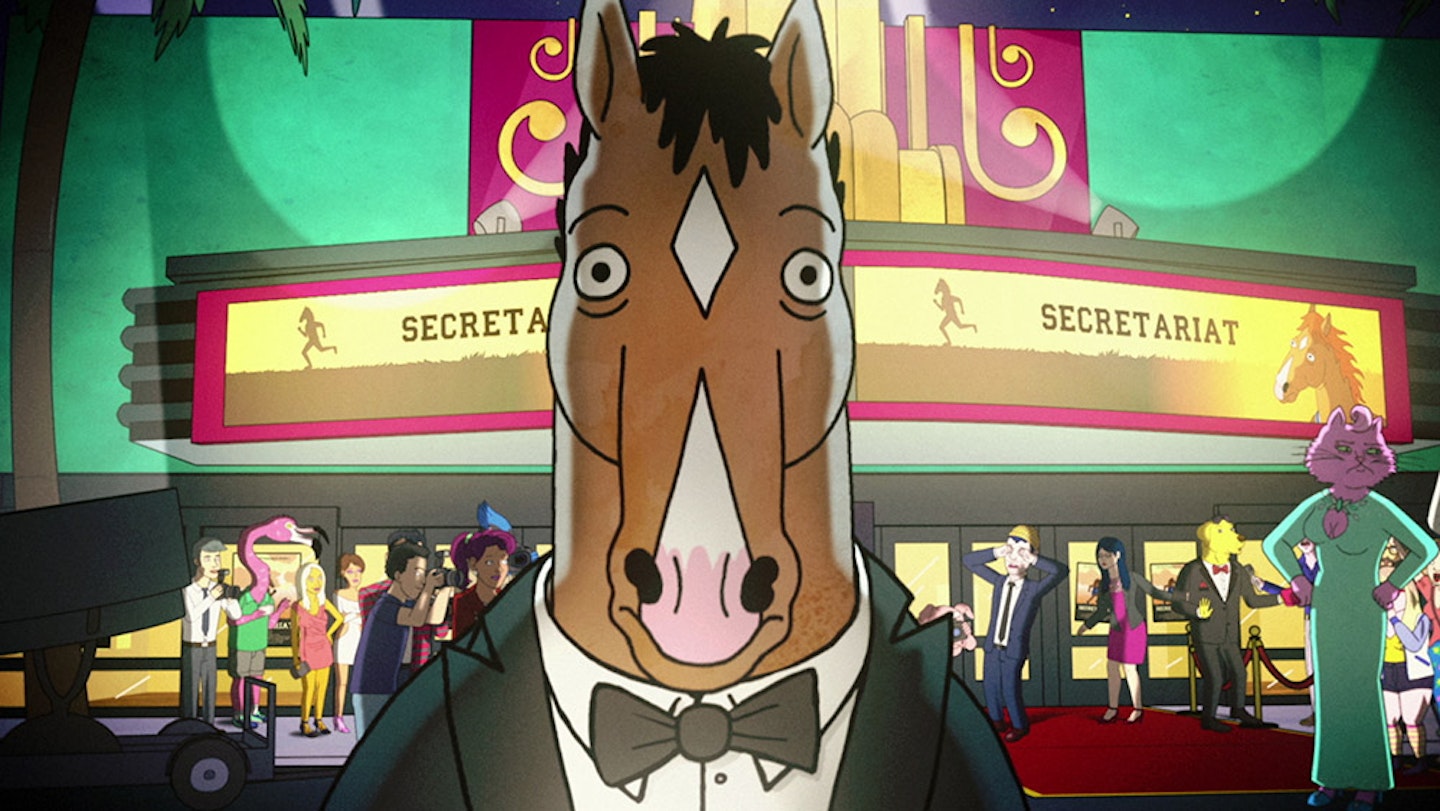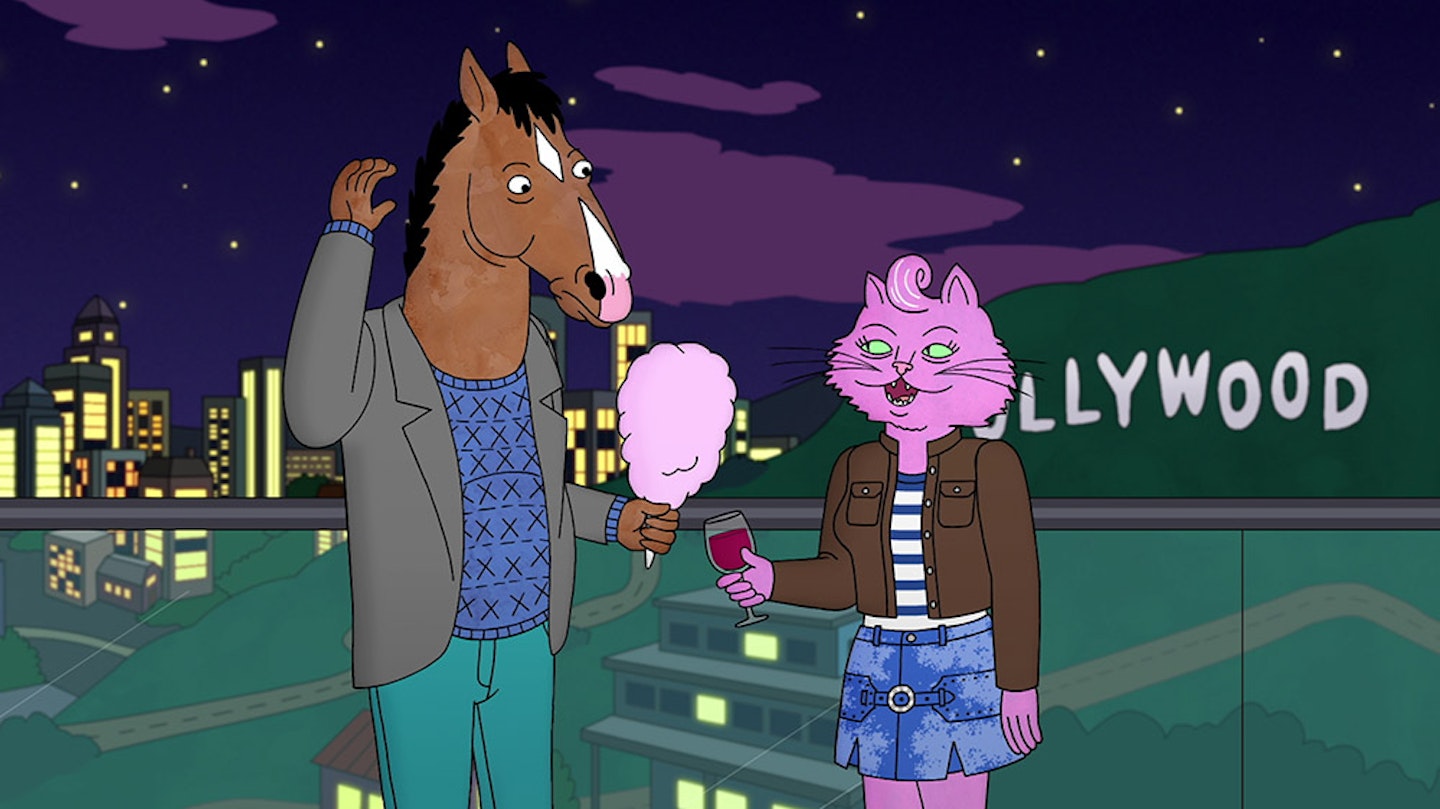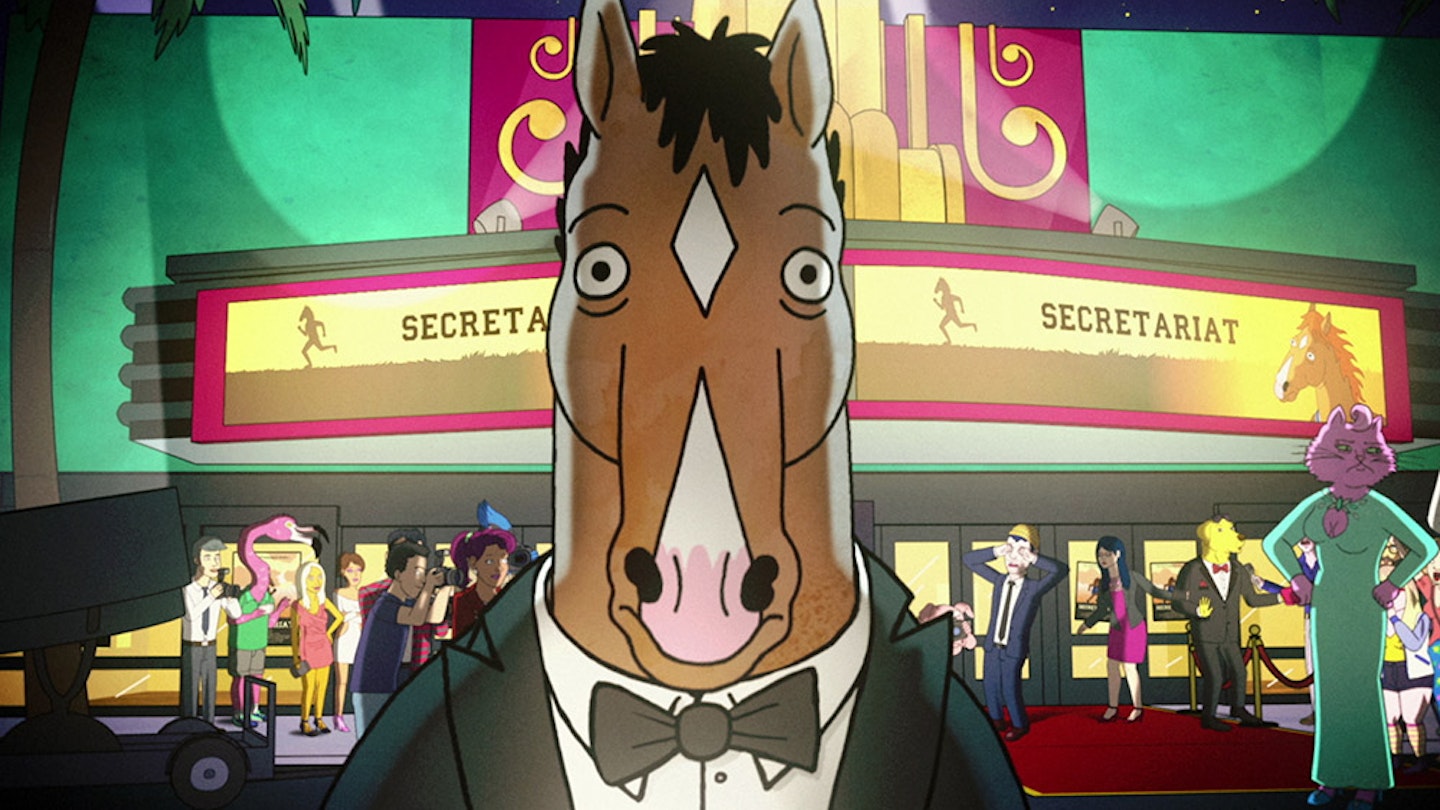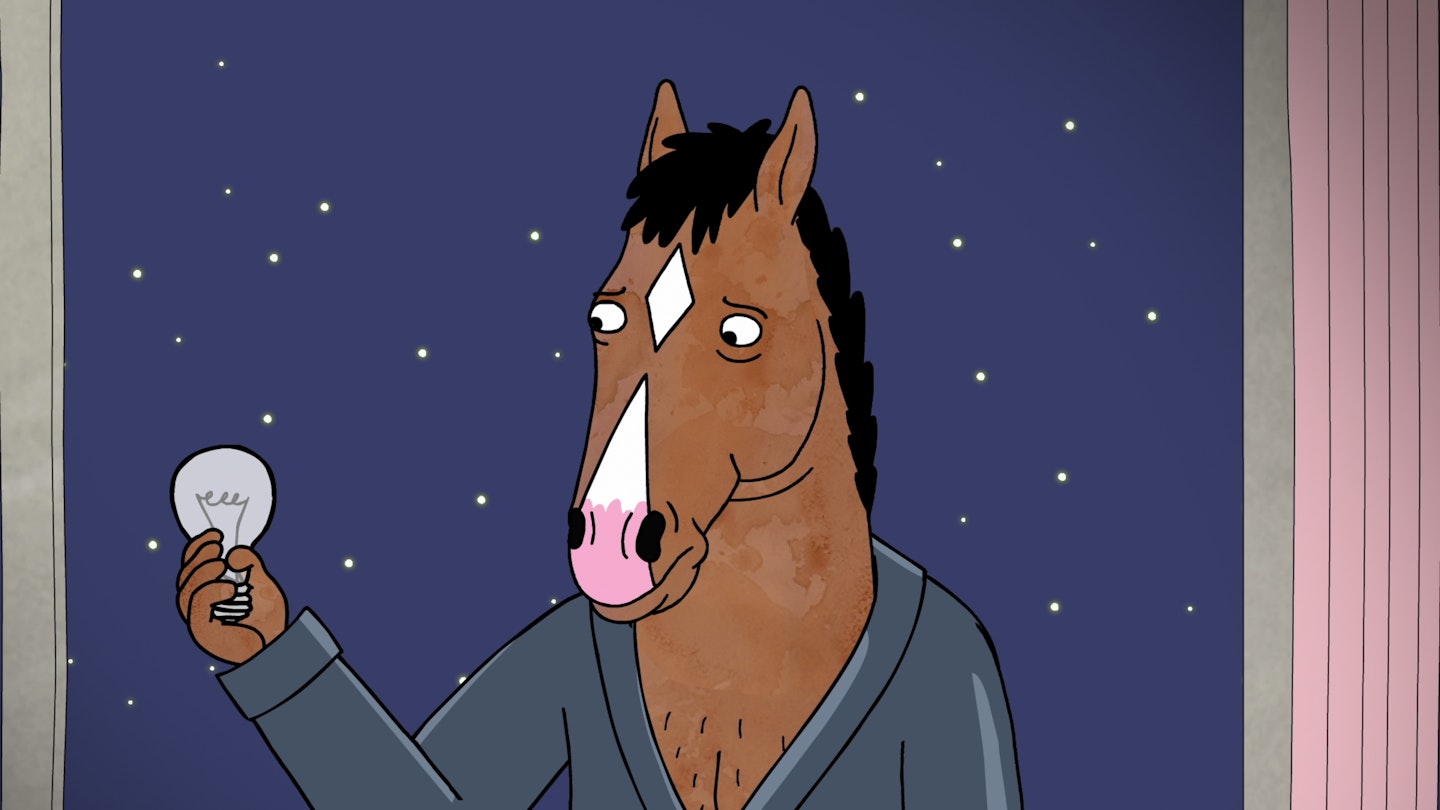
Welcome to Hollywoo, a version of Los Angeles where humans and humanoid animals coexist, a cat called Princess Carolyn manages a depressive, alcoholic horse actor named BoJack, and no-one bats so much as an eyelid about any of it.
The screwball creation of writer and comedian Raphael Bob-Waksberg (and his animator collaborator Lisa Hannawalt), unlike many animated comedies BoJack Horseman has a linear narrative (rather than the episodic nature of, say, The Simpsons or Family Guy), which means just jumping in at Season 3 is a tricky proposition. The writers instead take great pride — and its audience, great pleasure — in layered in-jokes that will leave newcomers well and truly stumped. And the comedy is all the richer for this painstaking attention to detail.
BoJack Horseman has always been at its best not when it’s being funny, but when it turns dark.
This season has BoJack (Will Arnett) on the Secretariat press tour — the biopic for which he hopes to receive his first Oscar nomination alongside acting heavyweights Bread Poot and Jurj Clooners. The Oscar race is the perfect target for the show’s razor-sharp media satire, but it’s not a comfortable fit for renowned self-saboteur BoJack. “Don’t fetishise your own sadness,” revered awards whisperer Ana Spanikopita (Angela Bassett) tells BoJack as he navigates Hollywoo’s (not a typo: the ‘D’ was destroyed by a helicopter) upper echelons.
For the other characters, it’s not all doom and gloom. BoJack’s perennial houseguest Todd (Aaron Paul) is still caught up in madcap schemes (such as his female-only cab service ‘Cabracadabra’), and Princess Carolyn (Amy Sedaris) is finally learning to balance work with her severely lacking personal life. The marriage of celebrity Labrador Retriever Mr Peanutbutter (Paul F Tompkins) to the very human Diane (Alison Brie) may still be rocky, but the writers’ decision to have him spend more time with Todd adds a welcome new source of comedy, including a running mystery regarding spaghetti strainers that culminates in one of the season’s biggest laughs.

Other highpoints this year include an episode set entirely underwater, and regular flashbacks to 2007, which provide a rich source of knowingly dated pop culture references (“What’s that? There’s a panic? At the disco?”). And if you’ve always wanted to see a killer whale give a private dance, this is your opportunity.
But BoJack Horseman has always been at its best not when it’s being funny, but when it turns dark — exploring the sadness of its characters and the emptiness of their lives. This 12-episode batch has the grimy residue of BoJack’s previous missteps lingering in the background (including his attempt to sleep with the daughter of a former girlfriend at the end of Season 2), but also gives him all-new reasons to re-examine his life. Not that he ever gets anywhere with them. And the writing team’s skill at switching between the light and the dark, sometimes within the space of a line, is a feat few comedies can match. Or even try to. And for that reason alone it should be treasured.



